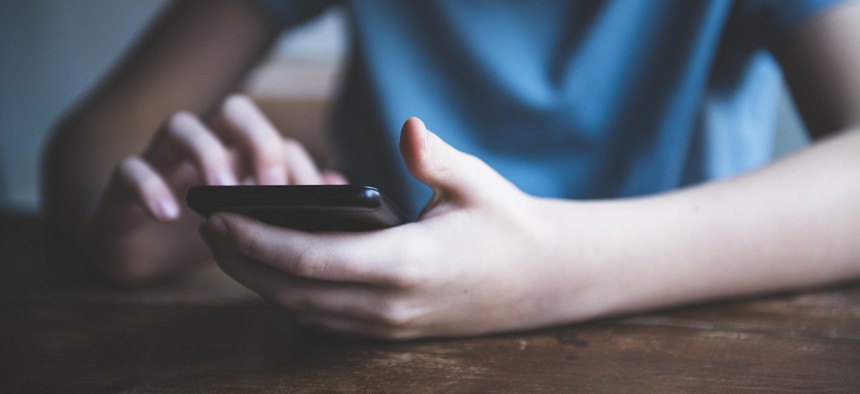Utah Poised to Block Porn on Smartphones

Boy using phone iStock.com/Rouzes
The bill, awaiting a signature from Gov. Spencer Cox, would require smartphones and tablets in the state to automatically enable filters for content deemed "harmful to minors."
Cell phones and tablets sold in Utah could soon be required to block pornography under a bill awaiting a signature from Gov. Spencer Cox.
The bill, passed by the House in February and the Senate earlier this month, requires tablets and smartphones sold after Jan. 1, 2022, to automatically enable a pre-installed “filter capable of blocking material that is harmful to minors.”
It will go into effect only if five states pass similar policies, a provision added after smartphone makers and retailers said it would be nearly impossible to implement automatic filtering for products in a single state. The bill also contains an automatic sunset clause after 10 years.
If Cox signs the bill, Utah would become the first state to mandate content filters on cellular devices.
The legislation would allow the state’s attorney general as well as members of the public to sue phone manufacturers if their devices don’t have filters in place. Each violation would be subject to a civil penalty of up to $10, a portion of which would be placed in the state’s Crime Victims Reparation Fund. Phone manufacturers would have the option to “cure the violation” in exchange for reduced penalties.
“Certain users,” including adults, would be able to deactivate the filter for specific content, which proponents of the policy have said ensures that it doesn’t infringe on First Amendment rights.
Rep. Susan Pulsipher, a Republican and the House legislation’s main sponsor, said the measure is a necessary step to protect children from explicit material at a time when many minors have their own smartphones and are at home with constant access to the internet.
“We just don’t want our children to be inadvertently exposed to pornography,” she said in a Facebook video.
The legislation is the latest in a years-long campaign by Utah lawmakers against pornography, including a non-binding resolution in 2016 that declared porn a public-health crisis.
Not a single Democrat voted for the latest measure in either of the state’s legislative chambers, voicing concerns over the constitutionality of the bill and the government’s right to determine what content should and shouldn’t be available to children.
"We are getting out of our lane," said Sen. Derek Kitchen. "This ought to be left up to parents."
Dawn Hawkins, director of the National Center on Sexual Exploitation, praised the measure, noting that virtually all smartphones already have content filters installed—but not set to turn on automatically.
“Utah has passed a critical, common-sense solution to help protect vulnerable children from accessing harmful pornographic content on smartphones and tablets,” she said in a statement.
The governor has until March 25 to act on the legislation. A spokeswoman for his office told PEOPLE Magazine that he would make a decision “before then.”
Kate Elizabeth Queram is a staff correspondent for Route Fifty and is based in Washington, D.C.
NEXT STORY: For States’ Covid Contact Tracing Apps, Privacy Tops Utility





